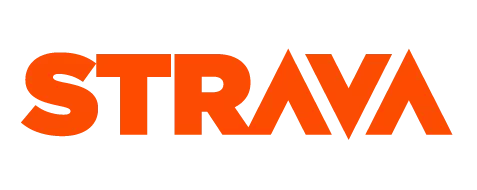Last week I covered why it’s important to understand the mistakes uncoached athletes make, in this follow up I cover why it’s also important to understand the reasons why some athletes choose not to hire a coach.
On a similar thread as a running, triathlon or endurance coach, it is important to understand the reasons why some clients may not hire a coach.
This knowledge can help you improve your coaching business and help you attract new clients.
This may involve offering flexible pricing options, spending time building trust with potential clients, and highlighting the benefits of coaching to help motivate and inspire prospective athletes.
Additionally, understanding the reasons why some clients may not hire a coach can also help you identify potential challenges and difficulties that these athletes may be facing. This can help you tailor your coaching approach and support your clients more effectively, ensuring that they get the most out of your coaching services.
Finally, understanding the reasons why some clients may not hire a coach can also help you identify areas for improvement in your own coaching business. For example, if you find that many potential clients are not hiring a coach due to cost, you may need to review your pricing structure or consider offering additional services to make paying for a coach more attractive. This doesn’t mean simply dropping your pricing for your one-on-one coaching but instead lowering the barrier to entry with additional lower priced services so you clients can stair step their way up your pricing tiers as you build trust and rapport. Overall goal is to increase the life-time value of your customers.
Overall, understanding the reasons why some clients may not hire a coach can help you improve your coaching business and better serve your clients, ultimately leading to greater success and satisfaction in your coaching career.
- Cost: Hiring an endurance coach can be expensive, especially if you are working with a coach on a long-term basis. This may be a prohibitive factor for some athletes who are on a tight budget.
- Time commitment: Working with an endurance coach requires a significant time commitment, both in terms of the coaching sessions themselves and the time required to complete the prescribed workouts. Some athletes may not have the time to commit to this level of training.
- Lack of trust: Some athletes may not have confidence in their coach's ability to help them achieve their goals, either because of a lack of credentials or personal experience. This lack of trust can be a major barrier to working with a coach.
- Personal preference: Some athletes simply prefer to train on their own and may not feel comfortable working with a coach. They may enjoy the autonomy and independence of self-guided training.
- Unclear goals: Some athletes may not have clear goals in mind for their training and may not see the value in working with a coach to establish those goals.
- Over confidence: Some athletes may feel that they already have a good understanding of training and may not see the value in working with a coach. They may believe that they can achieve their goals on their own.
- Fear of failure: Some athletes may be afraid of failing to reach their goals, even with the guidance of a coach. They may be afraid of being held accountable for their training and may prefer to train on their own.
- Past negative experiences: Some athletes may have had negative experiences with coaches in the past, which can make them hesitant to work with a coach again. They may have felt that their goals were not being met or that the coaching relationship was not a good fit.
- Lack of motivation: Some runners may not be motivated to work with a coach, either due to a lack of interest in the sport or personal issues. This may be due to a lack of goals or a lack of enjoyment in training.
- Lack of confidence: Some runners may feel that they are not ready or experienced enough to work with a coach. This may be due to a lack of confidence in their abilities or a lack of knowledge about the sport.
- Lack of knowledge: Some runners may not know what to expect from coaching or may not understand the benefits of working with a coach. This may be due to a lack of information or a lack of understanding about the coaching process.
Conclusion
As an endurance coach, it is important to understand the reasons why some athletes may decide not to work with a coach. By understanding these reasons, you can improve your marketing and outreach efforts to more effectively attract new clients.
Some athletes may be deterred by the cost of coaching, while others may not have the time or trust in a coach's ability to help them reach their goals. Personal preference, unclear goals, and past negative experiences can also be factors in an athlete's decision not to hire a coach. It is important to be aware of these potential barriers and to work with potential clients upfront to address any concerns they may have.
Ultimately, the decision to hire an endurance coach is a personal one and will depend on the individual athlete's needs, goals, and preferences. Some athletes may find that working with a coach helps them achieve their goals more effectively, while others may prefer to train on their own. As a coach, it is your job to provide the best possible support and guidance to prospective clients, whether they decide to work with you or not.
Our platform Training Tilt allows you to offer a range of services to your clients including the ability to create multiple pricing tiers from online memberships with self service training plans to premium one-on-one coaching services. it also offers the ability to create educational content that your clients can access from web and mobile apps in their own time.
Take our Free "Authentic" Marketing Course for Coaches
Designed for endurance sport coaches. Marketing doesn't need to be pushy. The best marketing simply creates a win-win relationship between you and your customers. Take the simple 6 part course to learn more.













